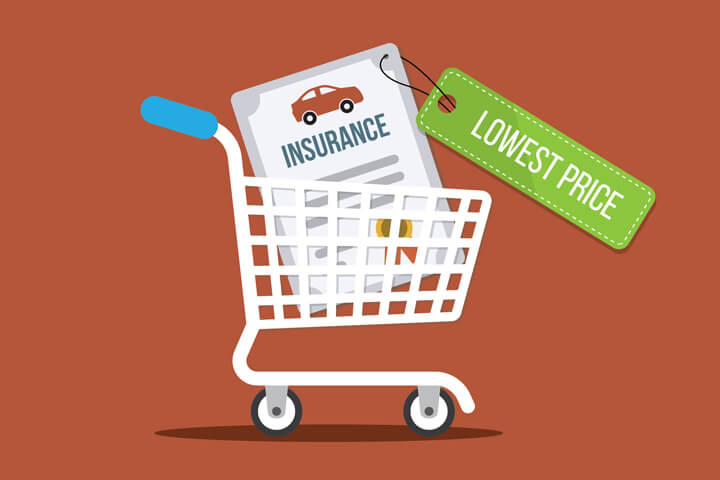
Table of Contents
Understanding the Different Types of Insurance
Insurance is one of the most important tools for protecting your finances and future security. Life is filled with uncertainties—accidents, illnesses, natural disasters, or even the unexpected loss of income can strike at any time. While you cannot predict when these challenges will occur, you can prepare for them. Insurance provides that preparation by transferring the financial risk to an insurance company in exchange for a premium.
Many people, however, feel overwhelmed when it comes to understanding insurance. There are so many types available that it can be confusing to know which ones you really need, how they work, and what benefits they bring. By gaining a deeper understanding of the different types of insurance, you can make smarter decisions for yourself, your family, and even your business.
In this guide, we’ll explore the most common types of insurance, their purpose, benefits, and key things you should know about each.

Why Insurance Matters
Before diving into specific types, it’s important to understand why insurance exists in the first place. The main purpose of insurance is financial protection. When something unexpected happens, the cost can be devastating. Medical bills, property repairs, or loss of income can wipe out years of savings. Insurance helps you avoid financial ruin by covering a significant portion of these expenses.
Insurance also provides peace of mind. Knowing that you and your loved ones are protected if something goes wrong allows you to focus on living your life rather than worrying about every potential setback. In addition, many types of insurance are legally required or strongly recommended, such as auto insurance, health insurance, or workers’ compensation.
Life Insurance
What It Is
Life insurance provides a payout to your beneficiaries if you pass away during the policy term. It’s designed to give your loved ones financial stability during a difficult time.
Types of Life Insurance
- Term Life Insurance
- Provides coverage for a set number of years (10, 20, 30, etc.).
- More affordable but does not build cash value.
- Suitable for families who need coverage for specific obligations like paying off a mortgage or funding children’s education.
- Whole Life Insurance
- Covers you for your entire life as long as premiums are paid.
- Builds cash value that you can borrow against or withdraw.
- More expensive but provides lifelong protection.
- Universal Life Insurance
- Offers flexible premiums and death benefits.
- Also accumulates cash value but with more investment options.
Why It Matters
Life insurance is essential if others rely on your income. It helps your family cover daily living expenses, debts, or long-term goals in your absence.

Health Insurance
What It Is
Health insurance helps pay for medical expenses like doctor visits, hospital stays, surgeries, and prescription drugs. It is one of the most crucial forms of protection because healthcare costs can be extraordinarily high.
Key Components
- Premiums: The amount you pay regularly to maintain coverage.
- Deductibles: The amount you pay out of pocket before insurance kicks in.
- Copayments/Coinsurance: The share of costs you pay for each medical service.
Why It Matters
Without health insurance, even a short hospital stay can cost thousands of dollars. Health insurance provides access to affordable healthcare and preventive services that keep you healthier in the long run.
Auto Insurance
What It Is
Auto insurance covers damages and liabilities if you are involved in a car accident. Most countries require drivers to have at least basic coverage.
Types of Coverage
- Liability Coverage: Pays for injuries or damages you cause to others.
- Collision Coverage: Covers damage to your own car from an accident.
- Comprehensive Coverage: Protects against theft, vandalism, natural disasters, or hitting an animal.
- Uninsured/Underinsured Motorist Coverage: Helps if the other driver has no insurance or inadequate coverage.
Why It Matters
Car accidents happen every day, and costs can quickly spiral out of control. Auto insurance ensures you don’t bear the financial burden alone.
Homeowners Insurance
What It Is
Homeowners insurance protects your house and belongings from risks like fire, theft, or natural disasters. It also covers liability if someone gets injured on your property.
Key Coverage Areas
- Dwelling Coverage: Repairs or rebuilds your home.
- Personal Property Coverage: Replaces items like furniture, electronics, and clothing.
- Liability Protection: Covers lawsuits for accidents on your property.
- Additional Living Expenses: Pays for temporary housing if your home becomes uninhabitable.
Why It Matters
For most people, a home is the largest investment they’ll ever make. Homeowners insurance safeguards that investment and gives you a safety net against devastating losses.

Renters Insurance
What It Is
Renters insurance is similar to homeowners insurance but tailored for tenants. It covers personal belongings and liability but not the physical building, which is the landlord’s responsibility.
Why It Matters
Many renters overlook insurance, but your landlord’s policy doesn’t protect your personal property. Renters insurance is affordable and provides vital protection against theft, fire, or accidents.
Disability Insurance
What It Is
Disability insurance replaces a portion of your income if you cannot work due to illness or injury. It ensures you can still meet financial obligations while recovering.
Types
- Short-Term Disability: Covers you for a few months to a year.
- Long-Term Disability: Provides income replacement for several years or until retirement.
Why It Matters
Your ability to earn an income is one of your greatest assets. Disability insurance protects it, giving you financial stability when you’re unable to work.
Travel Insurance
What It Is
Travel insurance provides protection against risks when traveling, such as trip cancellations, lost luggage, or medical emergencies abroad.
Coverage Options
- Trip Cancellation/Interruption
- Medical Emergencies Abroad
- Lost or Delayed Baggage
- Flight Delays
Why It Matters
Travel involves many variables outside your control. A canceled flight or medical emergency in another country can be extremely costly. Travel insurance gives you peace of mind when exploring new places.
Pet Insurance
What It Is
Pet insurance helps cover veterinary expenses for illnesses or accidents involving your pets.
Why It Matters
Vet bills can be unexpectedly high, and pet insurance allows you to provide the best care without worrying about finances.
Business Insurance
What It Is
Business insurance protects companies from financial losses due to risks like property damage, lawsuits, or employee-related issues.
Common Types
- General Liability Insurance
- Property Insurance
- Workers’ Compensation Insurance
- Business Interruption Insurance
- Professional Liability (Errors and Omissions)
Why It Matters
Entrepreneurs and business owners face many risks daily. Insurance helps businesses recover from losses and continue operating smoothly.
Umbrella Insurance
What It Is
Umbrella insurance is extra liability coverage that goes beyond the limits of your auto, home, or other policies. It protects you against major claims or lawsuits.
Why It Matters
If you face a lawsuit that exceeds your standard policy’s coverage, umbrella insurance saves you from paying out of pocket.
Long-Term Care Insurance
What It Is
Long-term care insurance covers services like nursing homes, assisted living, or in-home care, which are not usually included in health insurance.
Why It Matters
As people live longer, long-term care needs are increasing. This type of insurance protects your savings from being drained by prolonged care expenses.
Key Considerations When Choosing Insurance
- Evaluate Your Needs
- Consider your stage of life, family size, income, and assets. For example, a young professional may focus on health and auto insurance, while a family with children may prioritize life and homeowners insurance.
- Understand Policy Terms
- Always read the fine print. Know what’s covered, what isn’t, and the conditions for making claims.
- Compare Options
- Don’t settle for the first policy you see. Compare coverage, premiums, deductibles, and customer reviews.
- Balance Cost and Protection
- The cheapest option isn’t always the best. Look for a balance between affordability and adequate coverage.
Conclusion
Insurance is not just a financial product; it is a shield that protects your lifestyle, your loved ones, and your future. Understanding the different types of insurance helps you make informed decisions about the coverage you need. From protecting your health and income to securing your property and business, insurance provides a safety net for life’s unexpected turns.
While you can’t eliminate uncertainty, you can prepare for it. Choosing the right insurance policies ensures that when challenges arise, you have the support and financial backing to overcome them. By prioritizing protection today, you create a foundation of security for tomorrow.
Also visit:-
10 Simple Ways to Bring Romance Back into Your Marriage
FAQs on Understanding the Different Types of Insurance
1. What is insurance in simple terms?
Insurance is a contract where you pay a premium to an insurance company, and in return, they cover financial losses if certain events occur, like accidents, illnesses, or property damage.
2. Why is insurance important?
Insurance protects you from unexpected financial burdens. It gives you peace of mind knowing that you won’t be alone in covering big expenses when something goes wrong.
3. What are the main types of insurance everyone should have?
The most essential types are health insurance, life insurance, auto insurance, and homeowners or renters insurance, depending on your living situation.
4. What is life insurance?
Life insurance provides a payout to your family or beneficiaries if you pass away, helping them cover expenses and maintain financial stability.
5. What is the difference between term life and whole life insurance?
Term life covers you for a fixed period and is cheaper, while whole life lasts your entire lifetime and builds cash value over time.
6. Who needs life insurance?
Anyone with dependents, such as children, a spouse, or aging parents, should consider life insurance to protect their loved ones financially.
7. What does health insurance cover?
Health insurance usually covers doctor visits, hospital stays, surgeries, prescription drugs, and preventive care, though coverage can vary by policy.
8. Why is health insurance so important?
Without health insurance, medical bills can be overwhelming. Insurance helps you access quality healthcare without risking financial ruin.
9. What is auto insurance?
Auto insurance protects you financially if your car is damaged, stolen, or involved in an accident that causes injuries or property damage.
10. Is auto insurance legally required?
In most places, yes. At minimum, liability insurance is required to cover damages or injuries you cause to others.
11. What does homeowners insurance cover?
Homeowners insurance covers damage to your home, personal belongings, and liability if someone gets hurt on your property.
12. Do renters need insurance too?
Yes, renters insurance protects your personal belongings and provides liability coverage, even though you don’t own the building.
13. What is disability insurance?
Disability insurance replaces part of your income if you cannot work due to illness or injury.
14. What is the difference between short-term and long-term disability insurance?
Short-term disability covers you for weeks to months, while long-term disability can last for years or until retirement.
15. Who needs disability insurance?
Anyone who relies on their income to support themselves or their family should consider it.
16. What is travel insurance?
Travel insurance protects you against unexpected events during trips, such as medical emergencies, trip cancellations, or lost luggage.
17. Is travel insurance worth it?
Yes, especially for international trips where healthcare costs are high or for expensive trips where cancellations could be costly.
18. What is pet insurance?
Pet insurance helps cover vet bills for illnesses, injuries, or accidents involving your pets.
19. Do all pets qualify for pet insurance?
Most insurers cover cats and dogs, though some companies also cover exotic animals. Age and health may affect eligibility.
20. What is business insurance?
Business insurance protects companies from risks like property damage, lawsuits, employee injuries, or loss of income.
21. What is general liability insurance for businesses?
It covers accidents, injuries, or damages your business might cause to others.
22. Do small businesses need insurance?
Yes, even small businesses face risks, and insurance provides protection from lawsuits or unexpected losses.
23. What is umbrella insurance?
Umbrella insurance provides extra liability coverage beyond your standard auto, home, or other policies.
24. Who should get umbrella insurance?
Anyone with significant assets, property, or risks of being sued should consider umbrella insurance.
25. What is long-term care insurance?
It helps cover the cost of services like nursing homes, assisted living, or in-home care, which regular health insurance usually doesn’t pay for.
26. At what age should you buy long-term care insurance?
Experts often recommend buying it in your 50s or early 60s, before premiums rise sharply.
27. What is liability coverage in insurance?
Liability coverage pays for damages or injuries you cause to others, protecting you from lawsuits and financial loss.
28. What is comprehensive auto insurance?
It covers non-collision incidents like theft, fire, vandalism, or natural disasters.
29. Do I need collision coverage if I have an old car?
If your car’s value is very low, collision coverage may not be worth the cost.
30. What is the difference between premiums and deductibles?
Premiums are what you pay regularly to keep coverage, while deductibles are the amount you must pay before insurance pays out.
31. Can I have more than one type of insurance at the same time?
Yes, most people carry multiple policies—such as health, auto, and life—based on their needs.
32. What is a beneficiary in insurance?
A beneficiary is the person or entity you choose to receive benefits from your life insurance policy.
33. How do insurance companies calculate premiums?
They consider factors like age, health, driving record, occupation, location, and the amount of coverage you choose.
34. What is an insurance claim?
A claim is a formal request you file with your insurance company to receive coverage or payment after a covered loss.
35. How do I choose the right insurance policy?
Evaluate your needs, compare coverage options, check policy details, and balance affordability with sufficient protection.
36. Can I switch insurance companies?
Yes, you can switch providers if you find better coverage or lower rates. Just ensure there’s no lapse in coverage.
37. Why do insurance premiums go up?
Premiums may rise due to inflation, increased risks, claims history, or changes in your personal situation.
38. What is the role of an insurance agent?
An insurance agent helps you understand options, compare policies, and purchase coverage suited to your needs.
39. What is the difference between insurance and warranty?
Insurance protects against unexpected risks, while a warranty covers defects or malfunctions in products for a set time.
40. Is it possible to live without insurance?
Technically yes, but it’s very risky. Without insurance, unexpected events can lead to massive financial hardship or even bankruptcy.
Also visit:-



